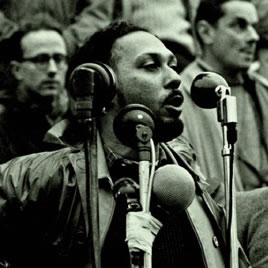
Discontent and its Civilisations: Dispatches from Lahore, New York and London
(Hamish Hamilton) by Mohsin Hamid
“The idea that we fall into civilisations is merely a politically convenient myth,” writes the novelist Mohsin Hamid in his new essay collection. Pluralism, Hamid argues, one of the greatest gifts of globalisation, has been turned into an enemy concept.
Admirers of his fiction (Hamid’s past novels include the Booker-shortlisted The Reluctant Fundamentalist) will be familiar with his accessible prose that mines the fault-lines of race, nationality and religion. In this, Hamid’s first non-fiction book, essays written over a 15-year period are divided into three sections, titled “Life”, “Art” and “Politics”, the latter covering Pakistan. Like all good memoirists, Hamid skilfully yokes grand-scale world events to minor life details for colour and context.
Central for Hamid is his love of Pakistan, a place “of surprises, of kinks and twists, of unexpected titillations and empathic connections, of a diversity that can only be described as human”. His understanding of attitudes towards Muslims, particularly since 9/11, is acute. “Look closely at a solid mass called Muslims,” Hamid asks, “and you will see a cloud of a billion individual atoms.” Pakistan is presented as a test-bed for international democracy, since accommodation between Sunni and Shia groups would encourage acceptance elsewhere. Hamid examines the struggles surrounding pluralism elsewhere, too, looking at drones that police the US border with Mexico and the rise of far-right groups in Europe. He wonders, “To what civilisation does a Syrian atheist belong? A Muslim soldier in a US army? A Chinese professor in Germany? A lesbian fashion designer in Nigeria?”
Critiques of the War on Terror and globalisation are matched by rational solutions, from raising Pakistan’s tax so that revenues outstrip foreign aid, to reprioritising its military and focusing on legal reform rather than disputes over blasphemy law.
While Hamid’s peripatetic lifestyle may have offered insight into multiple cultures, it has also, in his words, turned him into a “half-outsider”, which has given him a unique viewpoint. Perhaps most convincingly, most humanely, Hamid also argues for our right to be the author of our lives, not just human beings but “hybrid beings”. It’s our diversity that keeps us appealing – and alive.

